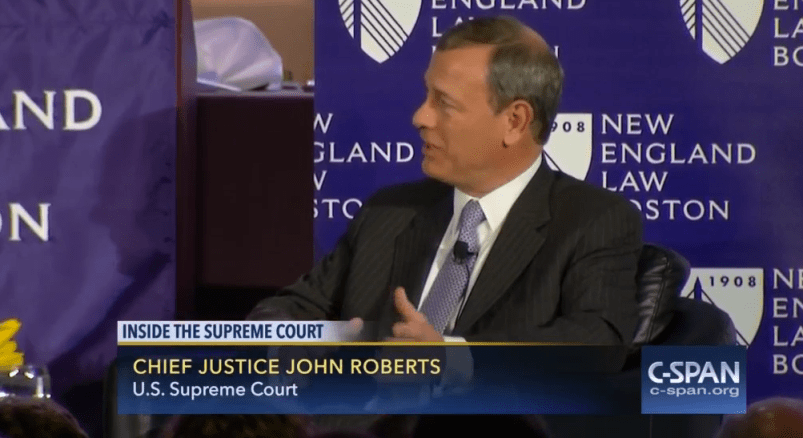Supreme Court Chief Justice John Roberts criticized the “sharply political, divisive” nomination process to the nation’s highest court during comments at a law school event in Boston in February, a little more than a week before Justice Antonin Scalia died.
The comments, made at New England Law on February 3 in Boston, were surfaced by the New York Times on Monday morning.
Roberts voiced two criticisms during the 45-minute talk, according to the Times.
First, Roberts said he was concerned that the nominating process was “being used for something other than ensuring the qualifications of the nominees.”
Second, Roberts said, the “sharply political, divisive hearing process” may signal to the public that the court operates on partisan lines.
“When you have a sharply political, divisive hearing process, it increases the danger that whoever comes out of it will be viewed in those terms. If the Democrats and Republicans have been fighting so fiercely about whether you’re going to be confirmed, it’s natural for some member of the public to think, well, you must be identified in a particular way as a result of that process,” Roberts said.
Watch the full conversation at C-SPAN.







Well…duh!
The court may operate on partisan lines!?
Thanks, Roberts! Something had been bothering me all these years about Bush V. Gore, but I couldn’t quite put my finger on it.
That’s right, John. It’s both parties to blame for this.
One party announces, before anything has been discussed or the autopsy has happened, that not even if the President nominated Ronald Reagan’s ghost himself would they engage in the confirmation process.
The other party says, the president has 11 months left to serve as president, and he will do his job and make the nomination as the Constitution says. Then the president nominates a moderate, reasonable jurist who has had significant Republican support in the past.
And the first party then says, “We won’t even meet with the nominee because … Joe Biden said something 12 years ago!”
That’s right, John. Both sides are the same.
Republicans: We will not confirm anyone nominated by Obama.
Roberts: Democrats are fighting for the nomination.
Roberts is clearly not partisan.
It must be uncomfortable knowing history will condemn you and your Court as a political hacks…